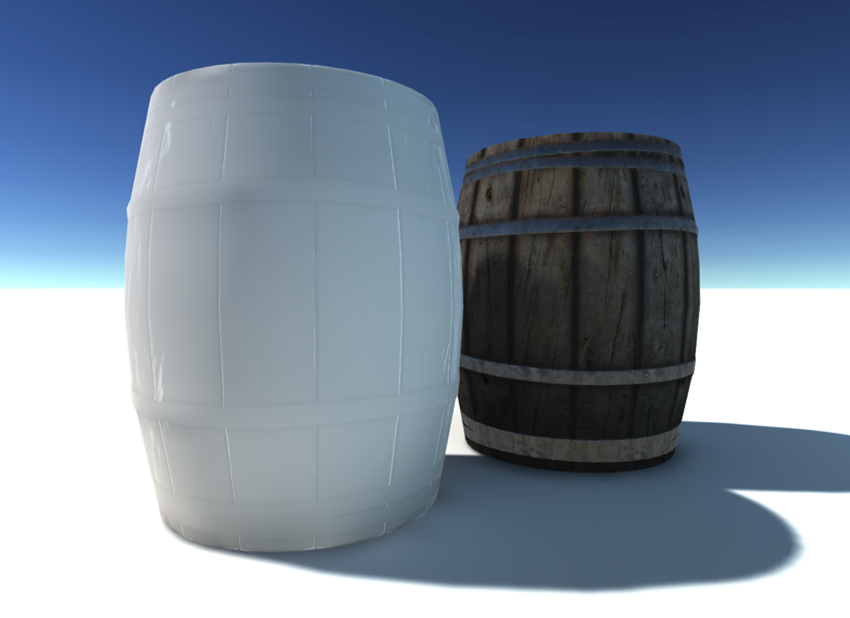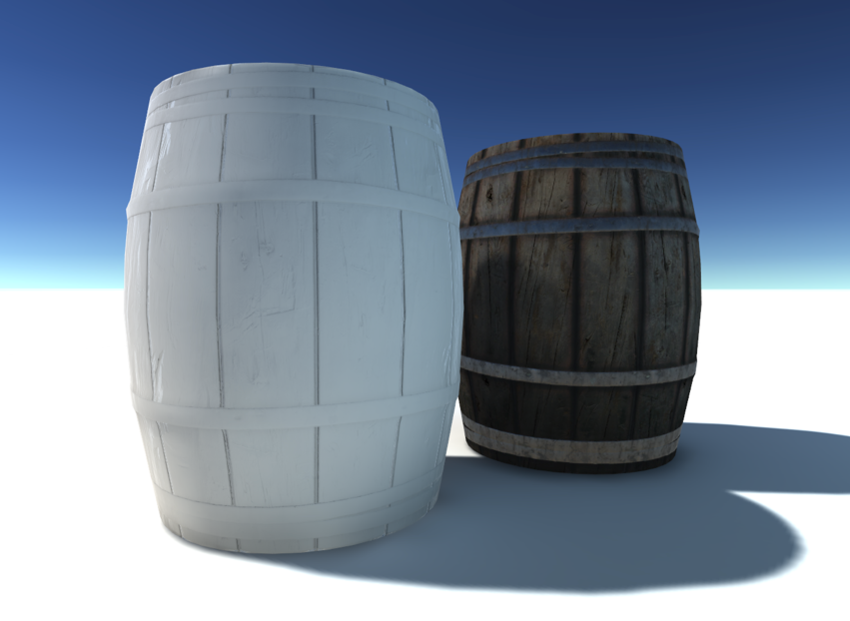Lightmap Directional Modes
There are two Directional Modes available for light maps: Directional and Non-Directional. To set the Directional Mode for a light map, open the Lighting window (Window > Lighting > Settings), click Scene, navigate to the Lightmapping Settings, ensure the Lightmapper is set to Enlighten, and use the Directional Mode drop-down menu. Both are available as real-time and baked lightmaps.
Directional light maps store more information about the lighting environment than Non-Directional light maps. Shaders can use that extra data about incoming light to better calculate outgoing light, which is how materials appear on the screen. This happens at the cost of increased texture memory usage and shading time.
Non-directional: flat diffuse. This mode uses just a single lightmap, storing information about how much light does the surface emit, assuming it’s purely diffuse. Objects lit this way will appear flat (normalmaps won’t be used) and diffuse (even if the material is specular), but otherwise will be lit correctly. These barrels are using baked lightmaps. The only detail definition comes from a reflection probe and an occlusion map.

Directional: normal mapped diffuse. This mode adds a secondary lightmap, which stores the incoming dominant light direction and a factor proportional to how much light in the first lightmap is the result of light coming in along the dominant direction. The rest is then assumed to come uniformly from the entire hemisphere. That information allows the material to be normal mapped, but it will still appear purely diffuse.

Performance
Directional mode uses twice as much texture memory as Non-directional mode and has a slightly higher shading cost.
Non-directional: one texture, one texture sample, a few extra shader instructions.
Directional: two textures, two texture samples, a few more extra shader instructions.
Real-time lightmaps take advantage of the same approach, and are subject to the same shading quality/cost tradeoffs.
The BRDF that is actually used for indirect light (the indirect part of baked) is a slightly less expensive version. UNITY_BRDF_PBS_LIGHTMAP_INDIRECT is defined in UnityPBSLighting.cginc.
Specular lighting on light maps
To achieve specular light on lightmap static assets, use the Light Modes Shadowmask or Distance Shadowmask on Baked lights. This ensures the light is real-time and high quality. See documentation on Light Modes for more information.)
2017–06–08 Page published with limited editorial review - Leave page feedback
Direct Specular removed in 5.6
Light Modes added in 5.6